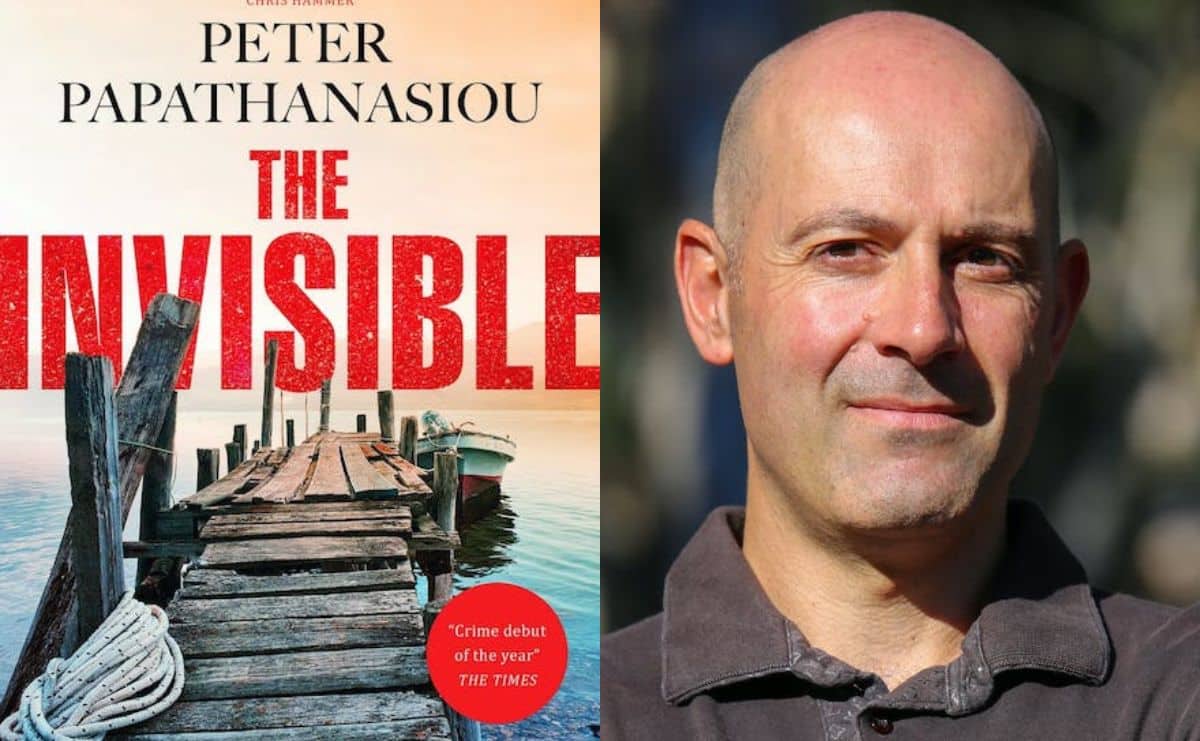Detective Sergeant George Manolis made his first appearance in Peter Papathanasiou’s 2021 journeys to what might easily be called outback Greece – the Prespes region in the north.
Manolis originally embarks upon this trip to recuperate from a horrendous incident, evoked with striking and memorable precision in the opening chapter. A prequel introduces Lefty, an ‘invisible’ – a person who has no documentation and about whom no documentation exists. Lefty has found himself in a tense and dangerous situation as he attempts to negotiate a deal with some evidently tough and fearless villains, and while these early snappily paced chapters move along at a welcome and inviting clip, the rest of the novel occasionally gets a little bogged down in digressive detail.
When Lefty, who was well known to Manolis from previous visits to Greece, suddenly vanishes, Manolis’s trip morphs from one of self-care into a search for him. Lefty’s abrupt disappearance might puzzle the locals but fails to galvanise the police into action and their ability to trace an invisible is limited by the absence of records. As Manolis’s search continues, more and more of Lefty’s character is revealed, alongside a slew of descriptions of local customs, beliefs, food, legends and history and even the local flora and fauna, with much of this information delivered in dialogue that more often evokes a lecture rather than a conversation:
‘What changed the face of northern Greece?’ Anna asked, having caught the tail end of the conversation.
The Invisible, Peter Papathanasiou
‘The child evacuations,’ said Angelo…
‘As you may know, the civil war was fought between the Greek government army and the Democratic Army, which was the military branch of the Communist Party,’ he said. ‘The government army was backed by the United Kingdom and United States, while the Democratic Army had the support of Yugoslavia, Albania, and Bulgaria … about thirty thousand children between the ages of five and fifteen were taken against their will and made to walk hundreds of kilometres across international borders.’
Readers who enjoyed The Stoning might recall that in Michael Hannan’s review for ArtsHub, he wrote ‘the novel’s secondary aspirations toward social commentary sometimes get in the way, manifesting in dialogue that drifts away from believable human speech.’ That can also be said of this follow-up; the story of the search for Lefty is sometimes overshadowed by the admittedly fascinating and informative descriptions of the environments in which Manolis finds himself.
There is no doubt that this novel succeeds as a snapshot, or even a portrait, of an isolated community in a remote part of Greece. It also succeeds in progressively revealing Lefty’s character and thus arguably succeeds on some level as a mystery story. But as a detective yarn, it is no thriller, never quite fulfilling the promise of those early exciting chapters before the real journey even starts.
Read: Book review: Dark Mode, Ashley Kalagian Blunt
There is no doubt that this novel succeeds as a snapshot, or indeed a portrait, of an isolated community in a remote part of Greece. It also succeeds in the progressive revelation of Lefty’s character and thus perhaps as a mystery story. But as a detective yarn, it is no thriller despite the promise of the two opening chapters.
The Invisible, Peter Papathanasiou
Publisher: Hachette
ISBN: 9781529424430
Paperback 320pp
RRP $32.99
Published 30 August 2022






